Related Research Articles
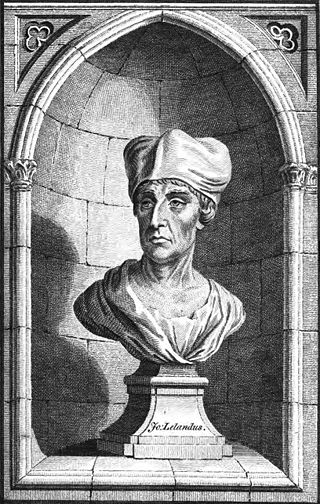
John Leland or Leyland was an English poet and antiquary.
This article contains information about the literary events and publications of 1656.

Joseph Ames was an English bibliographer and antiquary. He purportedly wrote an account of printing in England from 1471 to 1600 entitled Typographical Antiquities (1749). It is uncertain whether he was by occupation a ship's chandler, a pattern-maker, a plane iron maker or an ironmonger. Though never educated beyond grammar school, he prospered in trade and amassed valuable collections of rare books and antiquities.
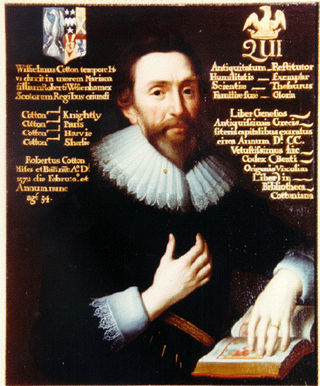
Sir Robert Bruce Cotton, 1st Baronet of Conington Hall in the parish of Conington in Huntingdonshire, England, was a Member of Parliament and an antiquarian who founded the Cotton library.

The Society of Antiquaries of London (SAL) is a learned society "charged by its Royal Charter of 1751 with 'the encouragement, advancement and furtherance of the study and knowledge of the antiquities and history of this and other countries'." It is based at Burlington House, Piccadilly, London, and is a registered charity.

Field Marshal John Dalrymple, 2nd Earl of Stair, was a Scottish soldier and diplomat. He served in the Nine Years' War and the War of the Spanish Succession and, after a period as British Ambassador in Paris, became a military commander at the Battle of Dettingen during the War of the Austrian Succession.
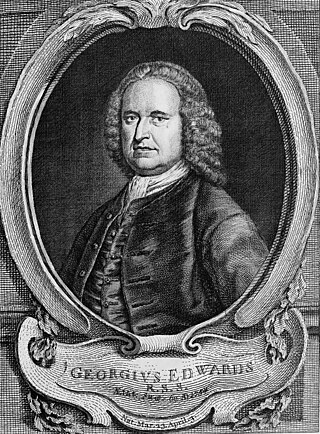
George Edwards was an English naturalist and ornithologist, known as the "father of British ornithology".
Arthur Agarde or Agard was an English antiquary and archivist in the Exchequer at Westminster.
Layamon's Brut, also known as The Chronicle of Britain, is a Middle English poem compiled and recast by the English priest Layamon. Layamon's Brut is 16,096 lines long and narrates the history of Britain up to the Early Middle Ages. It is the first work of history written in English since the Anglo-Saxon Chronicle. Named for Britain's mythical founder, Brutus of Troy, the poem is largely based on the Anglo-Norman French Roman de Brut by Wace, which is in turn a version of Geoffrey of Monmouth's Latin Historia Regum Britanniae. Layamon's poem, however, is longer than both and includes an enlarged section on the life and exploits of King Arthur. It is written in the alliterative verse style commonly used in Middle English poetry by rhyming chroniclers, the two halves of the alliterative lines being often linked by rhyme as well as by alliteration.

Francis Scott, 2nd Duke of Buccleuch, KT, FRS was a Scottish nobleman.
Francis Thynne was an English antiquary and an officer of arms at the College of Arms.
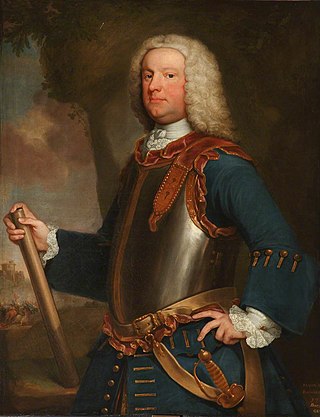
Lieutenant-General Richard Onslow was a British Army officer and politician. After the death of their parents, his older brother Arthur bought him a captain's commission in the British Army. He first saw action in the Anglo-Spanish War in 1727, after which he was returned to Parliament for the family borough of Guildford. His political contributions were negligible in comparison to his brother, and he continued to serve as a career officer, holding commands in the War of the Austrian Succession at Dettingen and Fontenoy. In 1759, he was appointed Governor of Plymouth and commander of the Western District, and died as a lieutenant-general the following year while presiding over two prominent courts-martial.
Montagu Venables-Bertie, 2nd Earl of Abingdon PC, styled Hon. Montagu Bertie until 1682 and Lord Norreys from 1682 to 1699, was an English nobleman.
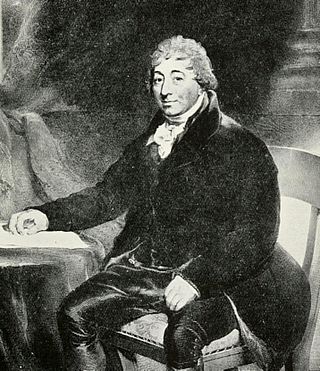
Sir Robert Wigram, 1st Baronet was a British merchant shipbuilder and Tory politician who sat in the House of Commons of Great Britain and of the United Kingdom between 1802 and 1807.

Charles Lyttelton (1714–1768) was an English churchman and antiquary from the Lyttelton family, who served as Bishop of Carlisle from 1762 to 1768 and President of the Society of Antiquaries of London from 1765 to 1768.
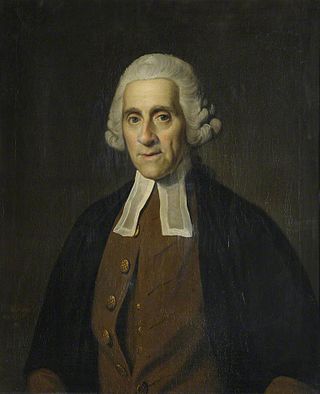
Daniel Wray was an English antiquary and Fellow of the Royal Society.
This article is about the particular significance of the year 1733 to Wales and its people.

Roger Wilbraham FRS was a British Member of Parliament (MP), bibliophile, antiquary, local historian and a patron of science and the arts. He had an extensive library and he published work on the Cheshire dialect.
This article is about the particular significance of the year 1712 to Wales and its people.

Charles Rogers was an English customs official, known as an art collector. He also wrote on drawings, and became a Fellow of the Royal Society.
References
. Dictionary of National Biography . London: Smith, Elder & Co. 1885–1900.